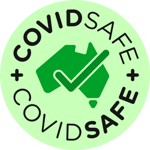In the world of business, every profitable business strategy, every lucrative investment, and every potent marketing campaign have something in common—they’re created by regular people. Behind every successful business are people that need to be heard, validated, and appreciated, which they obtain through their everyday relationships. Industry networking is a way to build these important relationships, which can develop into something profitable for both your business, and your innate need for human closeness.
If you’re not sure how to network, here are 8 fool proof industry networking tips that will help you to build solid business relationships.
1. Make a plan
As with most ventures, industry networking is easier when you have a plan. Take some time to figure out what you’re trying to achieve through networking. Are you trying to advertise your services to other local businesses? Wanting to build business networks so that your company will come up in conversations? Perhaps building a network of services that may be useful for your own business?
When you have your goals, write down how you will achieve them. This can include the networking events that you will attend, how you’ll remain in contact and build relationships with people, and how you will measure your networking success.
Understanding what you’re trying to get out of your networking is an important first step to success.
2. Prepare a list of icebreakers
If you’re a little on the introverted side and struggle to speak to new people, preparing a list of icebreaker questions can help you slip into a conversation more easily, without those throat-tightening awkward silences. Some common icebreaker questions include:
- What do you do?
- What brings you here?
- How are you finding the event?
- First time here?
Remember that being a little nervous can be appealing—you’re demonstrating a willingness to put yourself out there, despite being apprehensive. Vulnerability is a powerful way to connect.
3. Work on your elevator pitch
An elevator pitch allows you to describe your business quickly. It should be between 15 to 30 seconds long (the rough time for an elevator trip) and should contain essential info about your business. A typical elevator pitch includes a problem that a particular group of people have, the way that your business solves it, and additional information that helps to sell it. For example:
“We provide luxury chauffeured transport for business executives and holidaymakers. As the oldest chauffeur company in the world, we have built a vast infrastructure of vehicles, chauffeurs, and modern technology that allows us to compete with the country’s most popular transport services.”
Elevator pitches should be rehearsed, but not sound unnatural. Don’t try to say it verbatim because you’ll probably fail. Just remember the gist of your pitch and try to deliver it naturally.
4. Show genuine interest, and ask lots of questions
Industry networking is about building relationships. One of the most effective ways to build relationships is to cultivate a genuine interest in people. Try not to see them as a means to an end, but regular people with fears, desires, and their own struggles. When we look past the facade and try to see the person underneath, building a relationship becomes much easier. When two people show genuine interest in each other, conversation can flow naturally without the need for pretence, and it can be invigorating.
One of the best ways to encourage people to open up is by asking lots of questions. When someone is talking about something that they’re passionate about, you’d do well to stick to that topic. After talking about themselves for a while, most polite people will ask a question back, allowing you to get into your own life and business.
Being genuinely interested and asking lots of questions is one of the most important networking skills that you can develop.
5. Good body language
It’s thought that 55% of communication happens through body language.1 If we see someone across the room that has their arms folded and a raised lip, we likely wouldn’t approach them.. On the other hand, those with friendly eyes who have their arms naturally by their sides seem inviting, and we may naturally drift towards them.
The same applies when you’re chatting to people. Keep your body language open and friendly, have good eye contact, nod as they speak, and offer the occasional smile to tell the other person that you’re affable and engaged in the conversation.
6. Speak to plenty of people
The main goal of industry networking is to forge new business relationships, so speak to as many people as you can at networking events. This doesn’t mean darting about like a pinball—give each new person a chance to open up, and if you feel that the conversation has reached its end, politely move on.
7. Take a break if you need to
Meeting new people can be tiring, especially for the introverted. If you’re exhausted from repeatedly giving your elevator pitch, asking tens of questions, and smiling when you don’t really feel like smiling, take a few minutes outside by yourself. Those quiet moments can help you to rejuvenate for another round.
8. Follow up with an email
You tend to meet lots of people at networking events, and even if you have the memory of an elephant, you’re unlikely to remember everyone’s names. For the people you’ve chatted with and exchanged business cards, decide which of them you’d like to develop a relationship with, and send them a quick email saying how nice it was to meet them. Adding a reference to something from your conversation also shows them that you listened and can help to build a good relationship.
References


 1300 615 165
1300 615 165







 Secure Payments
Secure Payments
